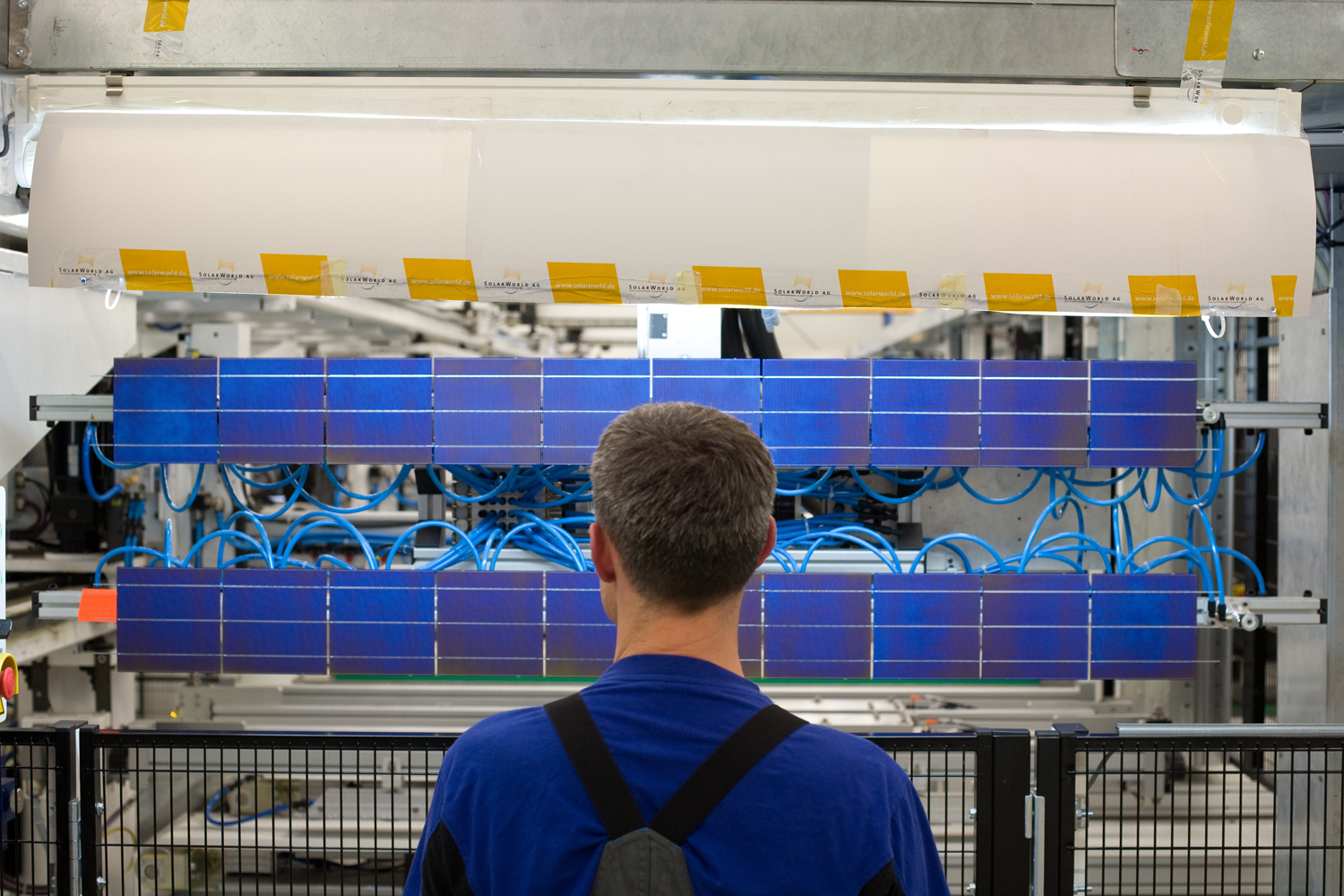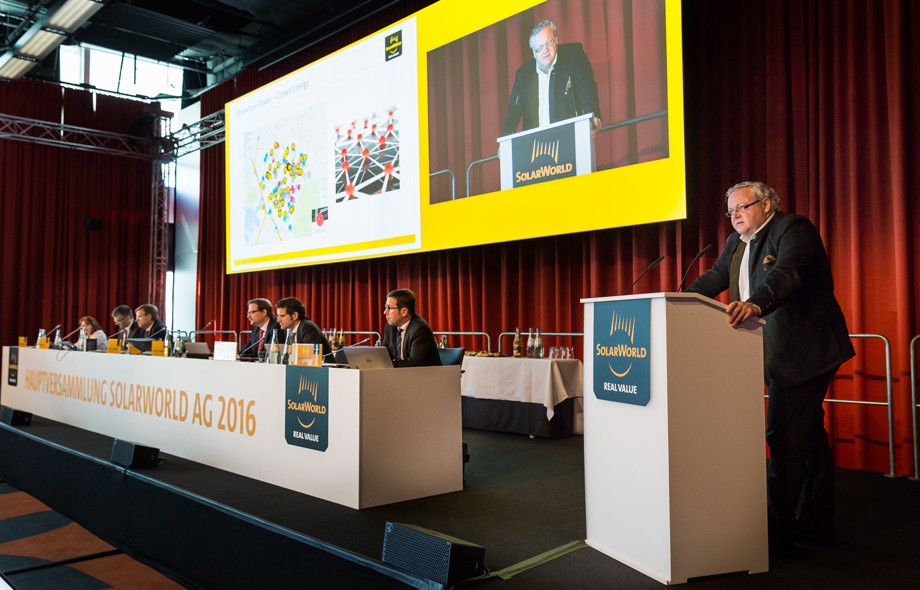Last major German solar cell maker surrenders to Chinese competition
Overpowered by Chinese competition, SolarWorld announced in a surprise move it was over-indebted and “obliged to file for insolvency proceedings.” Once one of the world's three biggest solar power companies, the company said in a statement it was evaluating if its subsidiaries, such as SolarWorld Americas, would also need to file for insolvency.
Germany was once the world’s largest market for solar panels and a technology pioneer. Solar PV is one of the key pillars of the country’s generational project Energiewende, the switch to a low-carbon economy without nuclear power.
The German solar industry experienced a spectacular boom in the mid-2000s after the introduction of generous feed-in tariffs that guaranteed solar power producers a fixed power price for a 20-year period. But after the feed-in tariffs were slashed and cheaper Chinese modules entered the market at the turn of the decade, the German industry collapsed, felling other major players such as Q-Cells, Solon and Conergy. Then, SolarWorld avoided insolvency by restructuring and petitioning for antidumping measures.
Chief executive Frank Asbeck blamed China for flooding the market with cheap modules. "SolarWorld has led the fight against illegal price dumping in the United States and Europe,” he said in a statement on Wednesday. “This dumping has further intensified, however." He added that Chinese manufacturers had circumvented antidumping measures, for example by moving production to neighbouring countries.
The company had presented an austerity programme in March in response to plummeting prices for solar PV modules. It remains unclear what the company’s insolvency means for the about 3,000 employees. “We will make every effort to save as many jobs and as much production as possible,” Asbeck said.
German solar industry “still well-positioned”
The German Solar Industry Association (BSW) also called SolarWorld’s insolvency “bitter.” But it wasn’t “the end of solar energy in Germany,” spokesperson David Wedepohl told the Clean Energy Wire.
“The Energiewende continues,” said Wedepohl. The country “still has successful companies working on the entire value chain”. This includes providing expertise in areas such as storage or facility maintenance. “We are well-positioned – even though there is pressure,” said Wedepohl.
Commentators in the German media said SolarWorld’s management had made serious mistakes. The insolvency of the former PV champion was first and foremost down to CEO Frank Asbeck’s inability to find an appropriate business strategy to react to cheap Chinese competition, Daniel Wetzel wrote in Die Welt. Most European PV companies “realised many years ago that it does not make sense to try to compete with gigantic Chinese production capacities” and instead opted to specialise in high-end niche products and innovation, according to Wetzel.
In business daily Handelsblatt, Franz Hubik wrote it was Asbeck’s biggest error not to put the company on a new footing after the first crisis. “It would have been an alternative to develop clever energy solutions with storage, solar facilities and intelligent power control systems. Instead, Asbeck continued to bet on the mass production and sale of interchangeable goods. This concept was bound to fail.”


